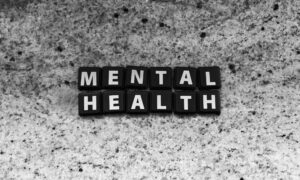Mental health therapy encompasses various treatment techniques aimed at addressing psychological disorders and emotional difficulties. It involves structured sessions with a trained therapist who employs specific therapeutic approaches tailored to the individual’s needs, such as cognitive-behavioral therapy, psychodynamic therapy, or dialectical behavior therapy. The primary goal of mental health therapy is to provide individuals with the tools and insights needed to cope with life’s challenges. Here are the different benefits of mental health therapy:
Discovering Self-Awareness
Through the therapeutic process, individuals are encouraged through the process of introspection. It facilitates a deeper understanding of their thoughts, emotions, and behaviors. This enhanced self-awareness allows for the identification of personal patterns and triggers. It also contributes to more effective coping strategies and decision-making processes. Therapy offers a structured environment where one can safely explore personal challenges and vulnerabilities, leading to a greater sense of self-acceptance and compassion.
Developing Coping Strategies
Developing coping strategies through mental health therapy offers individuals a way to manage stress, emotions, and challenges more effectively. Therapy provides a space for learning and practicing various techniques tailored to an individual’s unique circumstances and needs. Someone dealing with anxiety might learn grounding techniques to help manage panic attacks. This personalized approach confirms that coping strategies are effective and sustainable in the long term. As individuals incorporate these strategies into their daily lives, they often experience a reduction in the intensity and frequency of negative emotional states.
Unveiling Emotional Insights
Unveiling emotional insights involves uncovering and understanding the motivations behind thoughts and behaviors. Through therapy, individuals learn to recognize patterns that may have been previously unknown to them, such as how past experiences influence current emotional reactions. Someone discovers that their difficulty in trusting others stems from early childhood experiences of betrayal. Gaining these insights allows for a more comprehensive understanding of oneself, leading to healthier coping mechanisms and emotional responses.
Strengthening Relationships
Mental health therapy provides individuals and couples the tools to communicate more effectively, fostering a deeper understanding and connection between them. By addressing emotional barriers and unresolved conflicts, therapy helps clear the path for more meaningful interactions and mutual support. A couple might learn to navigate financial stress or parenting challenges without letting these issues strain their relationship. As parties learn to express their needs and actively listen to each other, the relationship’s foundation of trust and empathy is reinforced.
Collaborating With Family
Collaborating with family members during mental health therapy creates a support network for the individual. This provides emotional stability and encouragement throughout the therapeutic process. When families are involved in therapy sessions, they gain insights into the challenges faced by their loved ones, enabling them to offer more tailored support at home. Such involvement also educates family members on the complexities of mental illness, reducing stigmas, and fostering a more nurturing environment. By actively participating in therapy, families learn communication and problem-solving skills that improve the dynamics within the household.
Enhancing Problem-Solving Abilities
Therapy equips individuals with the skills to break down their challenges into manageable parts, analyze them effectively, and develop practical solutions. For individuals struggling with time management and feeling overwhelmed by daily tasks, they learn to identify specific areas of difficulty. They prioritize tasks and create a structured plan to tackle each task efficiently. This approach addresses the immediate problem. It also empowers the individual to apply these skills to future challenges, promoting a sense of competence and autonomy.
Managing Trauma and PTSD
Therapy provides a safe space for individuals to process their experiences, reducing the severity of symptoms such as flashbacks, nightmares, and severe anxiety. Techniques such as Cognitive Processing Therapy and Prolonged Exposure Therapy help individuals confront and reframe their traumatic memories. This leads to significant improvements in their daily functioning. Someone who experienced a car accident might gradually learn to reduce their fear of driving. This is through carefully guided exposure therapy sessions. Eye Movement Desensitization and Reprocessing therapy can be effective in helping individuals process trauma. This is by diminishing the emotional distress associated with traumatic memories.
Schedule for a Mental Health Therapy Session
Schedule a mental therapy session if you recognize the need for support in navigating emotional challenges or mental health conditions. When scheduling a session, look into the therapeutic approach that resonates with you. Different methods and treatments help individuals in unique ways. Reflect on your goals for therapy, whether it’s coping with anxiety, managing depression, or improving relationships. Look for a therapist whose expertise aligns with these objectives. Look into a treatment that suits your lifestyle, whether in-person sessions, online therapy, or group settings.



































